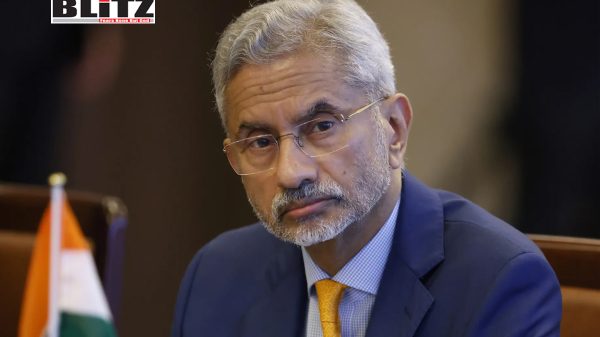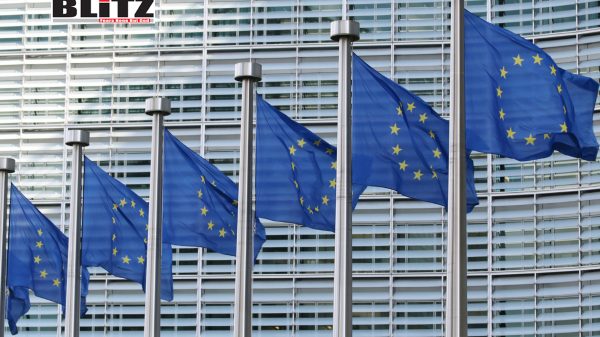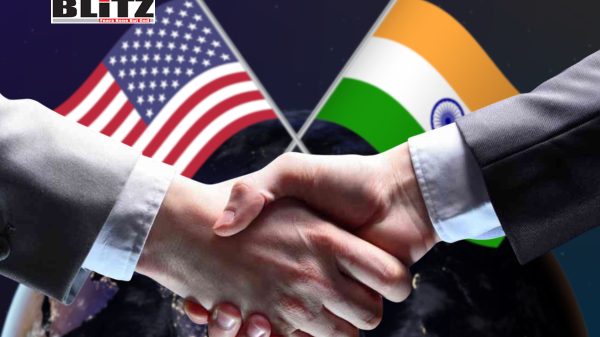India pushes back against US oil tariffs, accuses Washington of ‘picking on’ New Delhi
- Update Time : Tuesday, October 7, 2025

Indian Foreign Minister Subrahmanyam Jaishankar has taken aim at the United States for what he described as punitive and discriminatory tariffs targeting India’s oil trade with Russia, accusing Washington of unfairly singling out New Delhi while overlooking similar behavior from Western allies. Speaking at the Kautilya Economic Conclave on October 5, Jaishankar urged the two nations to find a “landing ground” on trade matters, warning that the current measures risk undermining the strategic trust underpinning the US-India partnership.
The controversy stems from a 25% tariff Washington imposed in August on India’s purchases of Russian oil, part of a broader set of punitive trade measures following the failure of the two countries to reach a new trade agreement. The tariff, which effectively penalizes India for maintaining energy ties with Moscow amid Western sanctions, comes as global tensions over Russia’s war in Ukraine continue to reshape energy alliances.
Jaishankar did not mince words about what he viewed as Washington’s hypocrisy. “We regard this as very unfair,” he said. “It has picked on us for sourcing energy from Russia when there are other countries that have done so – including countries that right now have a far more antagonistic relationship with Russia than we do.”
The minister’s comments reflect mounting frustration in New Delhi over what Indian officials perceive as the West’s selective application of economic punishment. While the United States and European Union have repeatedly urged India to curtail its imports of Russian crude – arguing that such purchases indirectly fund Moscow’s military operations in Ukraine – Western nations themselves continue to engage in nuanced, and at times opaque, trade practices that indirectly sustain Russia’s economy.
European countries, for instance, have maintained imports of Russian liquefied natural gas (LNG) and allowed certain exemptions for oil products processed outside Russia but originating from Russian crude. Meanwhile, several US allies in Asia have also quietly continued buying Russian energy under different trade arrangements.
India’s stance has remained consistent since 2022: it will prioritize national energy security and affordability over external political pressures. “We have to look after the interests of our citizens,” Jaishankar has frequently said in various forums, reiterating that India’s oil imports are guided by pragmatic considerations rather than ideological alignments.
Data underscores the extent of India’s reliance on Russian crude. According to analytics firm Kpler, Russia supplied approximately 1.6 million barrels per day (bpd) of crude to India in September 2025 – representing around 34% of the country’s total oil imports. Russia’s rise as India’s top supplier has been dramatic, overtaking traditional exporters like Iraq and Saudi Arabia.
The attraction is straightforward: Russian oil is heavily discounted due to Western sanctions, allowing India to stabilize fuel prices domestically and support its post-pandemic economic recovery. Moreover, Indian refiners have managed to resell refined products such as diesel and aviation fuel to Europe, effectively turning Russian oil into a profitable re-export commodity.
This has not gone unnoticed in Washington. US officials have privately expressed frustration that India’s purchases help offset the impact of sanctions meant to cripple Russia’s war economy. However, New Delhi has repeatedly countered that it is acting within the framework of global trade laws and that Western pressure smacks of double standards.
Jaishankar’s sharp criticism comes at a delicate moment for US-India relations. Both countries have deepened cooperation on defense, technology, and regional security through forums like the Quad alliance, but economic relations remain complicated by protectionism and trade disputes.
The 25% tariff is part of a broader pattern of trade friction. After the collapse of negotiations over preferential trade access, Washington reinstated several duties on Indian goods, citing “non-reciprocal trade practices.” India, for its part, has imposed retaliatory tariffs on American products such as almonds and apples.
Yet, both governments continue to emphasize the importance of maintaining dialogue. Jaishankar acknowledged that despite their differences, the US remains one of India’s most important partners. “We need to find a landing ground,” he said, suggesting that cooperation in new areas – such as digital trade and renewable energy – could help offset tensions over oil and tariffs.
In his speech, Jaishankar also outlined a broader vision for India’s trade strategy, emphasizing the importance of Free Trade Agreements (FTAs) with “stable and predictable” economies. He noted India’s satisfaction with the progress of its FTA with the United Kingdom and its ongoing negotiations with the European Union. However, he stressed that India’s trade engagements must be guided by mutual respect and fairness – principles he implied were lacking in the current US approach.
India’s recent trade diversification strategy seeks to reduce vulnerability to external political pressure. New Delhi has been deepening economic ties with the Middle East, Southeast Asia, and Africa, while also expanding its participation in South-South cooperation frameworks. This diversification aligns with Jaishankar’s repeated emphasis on a multipolar world order – one in which developing nations assert their autonomy against Western dominance.
At the G20 Foreign Ministers’ Meeting in New York last month, Jaishankar was equally forthright in criticizing what he described as Western “double standards” regarding the energy, food, and fertilizer needs of the Global South. “When it comes to the priorities of the developing world,” he said, “there is often a tendency in the West to moralize rather than to empathize.”
His remarks resonated widely among developing nations that share similar grievances about being disproportionately affected by sanctions and trade disruptions. Many countries in Africa, Asia, and Latin America have echoed India’s stance that energy security should not be weaponized for geopolitical purposes.
The dispute over oil tariffs is unlikely to derail the broader US-India relationship, but it does expose a fundamental tension between Washington’s geopolitical agenda and New Delhi’s economic pragmatism. As India continues to rise as a global power, it is increasingly unwilling to accept what it views as moral lectures from the West, especially when those lectures come with economic penalties.
For now, Jaishankar’s message is clear: India will not be coerced into altering its foreign policy or energy strategy to satisfy Western expectations. Instead, it will chart an independent course, guided by its national interest – even if that means clashing with powerful partners along the way.











